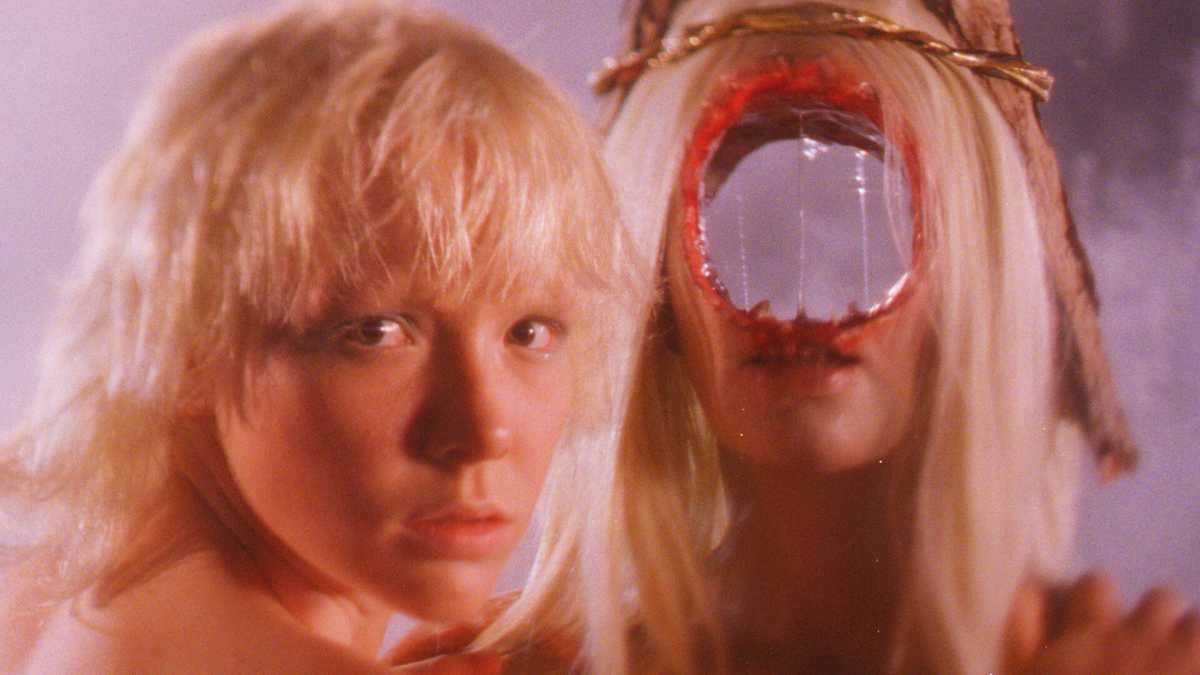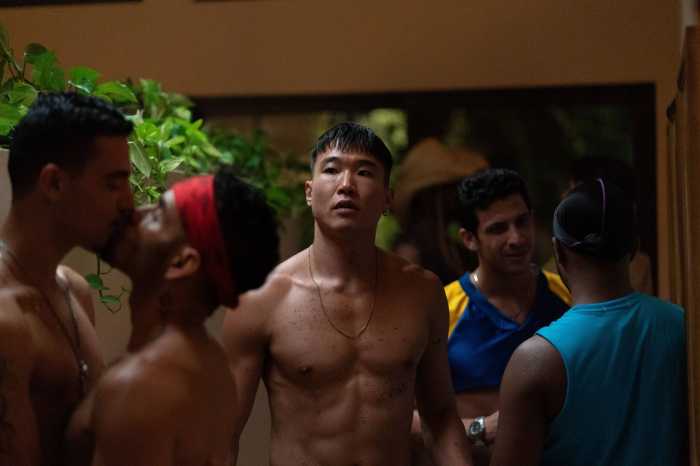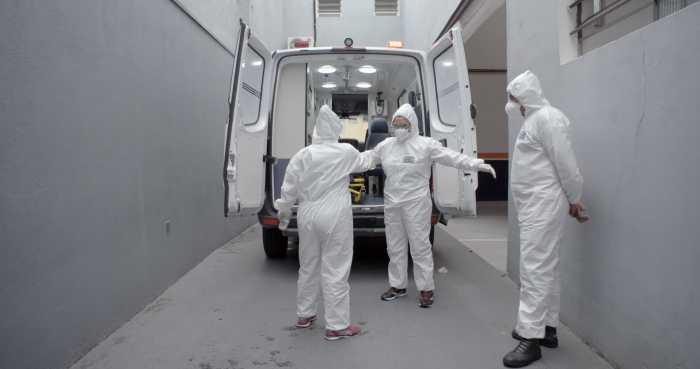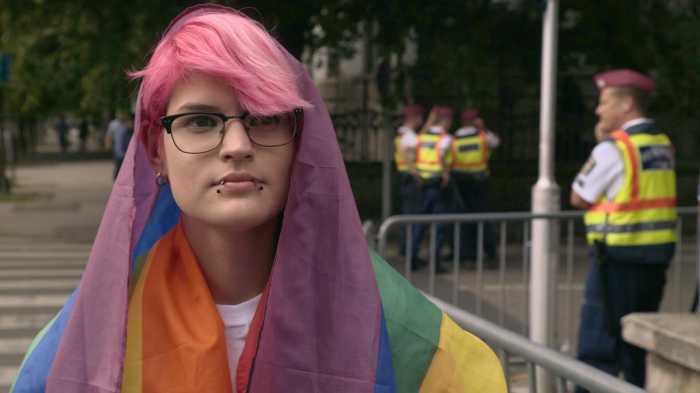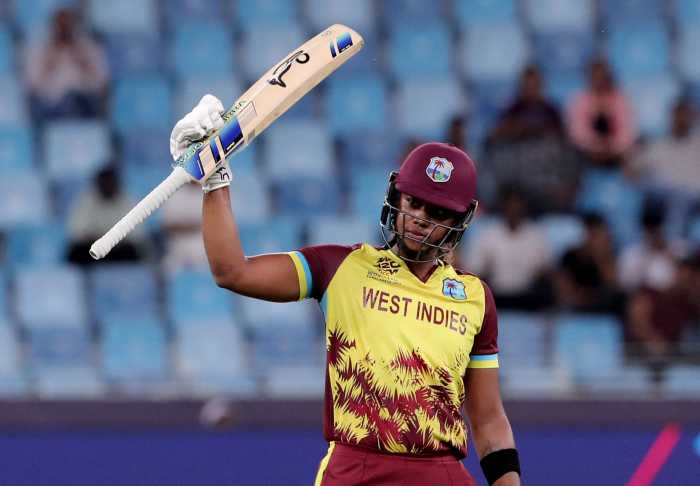“After Blue (Dirty Paradise)” plays like a film one slowly falls asleep while watching, wondering just what one saw the next day. After an accomplished debut feature, “The Wild Boys,” and several shorts, queer French director Bertrand Mandico has continued to work in a similar vein. While he moves up to color from the black and white of “Wild Boys,” “After Blue (Dirty Paradise)” is even more stylized. It juxtaposes and combines purple and green light to garish effect. Set on a planet named After Blue following an economic and technological crash on Earth, it moves like a snail who has gobbled a whole bottle of Xanax, running 130 minutes.
The atmosphere of After Blue proved deadly to men, creating an all-female society on the planet. Women reproduce by artificial insemination. Roxy (Paula-Luna Breitenfelder) finds a woman’s head buried in a sandy desert. After being rescued by Roxy, she turns out to be the outlaw Kate Bush (Agata Buzek). This concept is the film’s high point. Kate says she will grant Roxy three wishes, then murders the other women on the scene and runs away. Together with her mother Zora (Elina Löwensohn), Roxy is forced to track Kate down, exploring this very strange world slowly and in great detail.
“Wild Boys,” which was set on an island reform school for teenage boys, was genuinely provocative: It was campy and witty while displaying the ugliest aspects of masculinity. It had a great sense of humor, with prosthetic penises falling off its cast of female actors in drag and phallic fruits gushing thick, white liquid. It was also willing to be disturbing. “After Blue (Dirty Paradise)” had the same potential, but while a few of its ideas are funny in theory — the best joke being that Kate Bush is really a Polish woman named Katajena Bushovsky, the second best being Louis Vuitton designing androids — the tone is painfully solemn and somber.
Mandico’s Achilles’ heel is the extent to which his work is steeped in other directors and writers. “The Wild Boys” took its name from a William S. Burroughs novel, and also borrowed from “Lord of the Flies,” “Treasure Island,” and filmmakers like Kenneth Anger, Guy Maddin, and Raúl Ruiz. (Mandico’s style and attitude suggest fellow queer French director Yann Gonzalez, whose breakthrough was the neo — giallo “Knife + Heart.”) “After Blue” opens with a graphic that could’ve graced a vaporwave album cover, suggesting its move into the ‘80s. But it’s also an extremely revisionist Western. It suffers from an oddly stagebound quality to it, as though the lights and smoke wafting through the set are meant to cover up how small it actually is.
“Style over substance” is usually a lazy critique which misunderstands what both ideas really mean. But when comparing “After Blue” and “Neptune Frost,” which also opens Friday, its flaws became glaring. The direction and cinematography of “After Blue” might be viewed as its strong streak, but they repeat the same textures over and over. “Neptune Frost” is just as imaginative and even more colorful but actually seems purposeful. “The Wild Boys” did something thoughtful and critical with gender, while “After Blue” acts out erotic longing among a cast of conventionally attractive cisgender white women. Despite feeling horny all the time, it struggles to capture the charge of great experimental shorts like Jack Smith’s “Flaming Creatures” and Jean Genet’s “Un chant d’amour.” “After Blue” collapses, betraying its initial promise in favor of an empty aesthetic geared towards male pleasure.
“After Blue (Dirty Paradise)” | Directed by Bertrand Mandico | Altered Innocence | In French with English subtitles | Opens June 3rd at the Alamo Drafthouse Manhattan

